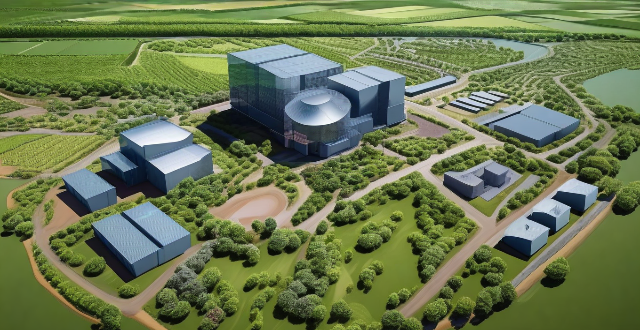Water conservation is crucial for energy efficiency and emission reduction. It reduces the need for energy-intensive water treatment, distribution, and usage in various sectors like agriculture, industry, and households. Conserving water also maintains renewable energy sources like hydropower and reduces the environmental footprint of energy production. Therefore, water conservation contributes to a more sustainable future with efficient energy use and protection from climate change effects.

How Does Water Conservation Relate to Overall Energy Efficiency and Emission Reduction?
Water conservation is a critical component of achieving overall energy efficiency and reducing emissions. The relationship between water conservation and these goals can be broken down into several key areas:
1. Energy Use in Water Treatment and Distribution
- Treatment Plants: Treating water for consumption requires a significant amount of energy, especially if the water needs to be heated or heavily treated.
- Pumping and Distribution: Once treated, water must be pumped through extensive networks of pipes, which also consumes energy.
By conserving water, we reduce the amount that needs to be treated and distributed, thereby saving energy.
2. Hydropower Generation
- Dams and Reservoirs: Hydropower generation relies on the availability of water. If water levels are too low, it affects the ability to generate electricity.
- Run-of-the-River Systems: These systems use the natural flow of rivers to generate power and are less affected by droughts but still require a minimum water level.
Conserving water helps maintain adequate levels for consistent hydropower generation, contributing to a stable and renewable energy source.
3. Thermal Power Plants
- Cooling Systems: Many power plants use water for cooling purposes. A reduction in available water can limit their capacity or force them to seek alternative cooling methods, which may be less efficient.
- Steam Turbines: Some plants rely on steam turbines where water is converted into steam to turn turbines. Less water means less steam production, affecting output.
Water conservation ensures that these facilities can operate at optimal levels without compromising their energy output.
4. Agriculture
- Irrigation: A significant portion of the world's freshwater withdrawals goes toward agriculture. Efficient irrigation systems save water and reduce the need for pumping, which requires energy.
- Fertilizer Production: Producing fertilizers often requires large amounts of energy and water. By reducing demand through better agricultural practices, both resources are saved.
5. Industrial Use
- Manufacturing Processes: Many industrial processes require water as an ingredient or for cooling purposes. Reducing water usage can lead to lower energy demands.
- Waste Management: Treating industrial wastewater also consumes energy. Conserving water reduces the volume of wastewater produced, saving energy in the process.
6. Residential Use
- Heating Water: Heating water for domestic use accounts for a substantial portion of household energy consumption. Using less hot water saves energy.
- Appliances: Dishwashers, washing machines, and other appliances use both water and energy. Efficient models save on both fronts.
7. Transportation
- Shipping: Large ships require vast amounts of water for ballast and cooling systems. Reducing this demand could lead to more energy-efficient shipping practices.
- Maintenance: Cleaning and maintaining transportation infrastructure like canals and ports uses both water and energy. Conservation efforts here would result in savings across both resources.
Conclusion
Water conservation directly impacts energy efficiency by reducing the demand for energy-intensive water treatment, distribution, and usage across various sectors. It also plays a crucial role in maintaining renewable energy sources like hydropower. Additionally, by conserving water, we can reduce the environmental footprint associated with energy production, including greenhouse gas emissions. Thus, water conservation is not just about saving water; it's about creating a more sustainable future where energy is used more efficiently, and our planet is protected from the adverse effects of climate change.